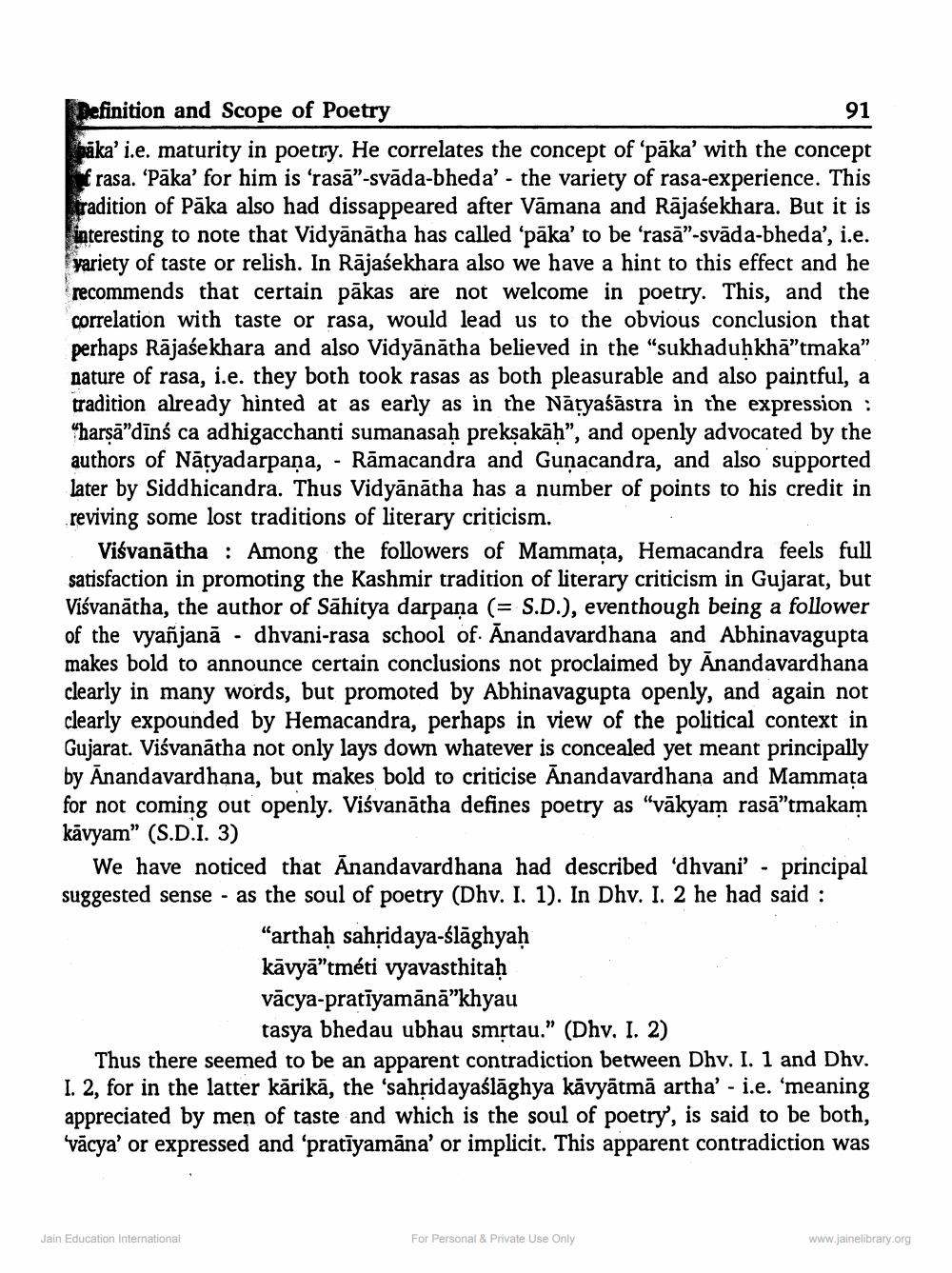________________
Definition and Scope of Poetry
91 sāka' i.e. maturity in poetry. He correlates the concept of 'pāka' with the concept frasa. 'Pāka' for him is 'rasā"-svāda-bheda' - the variety of rasa-experience. This tradition of Pāka also had dissappeared after Vāmana and Rājasekhara. But it is interesting to note that Vidyānātha has called 'pāka' to be 'rasā”-svāda-bheda', i.e. yariety of taste or relish. In Rājasekhara also we have a hint to this effect and he recommends that certain pākas are not welcome in poetry. This, and the correlation with taste or rasa, would lead us to the obvious conclusion that perhaps Rājasekhara and also Vidyānātha believed in the "sukhaduhkhā”tmaka" nature of rasa, i.e. they both took rasas as both pleasurable and also paintful, a tradition already hinted at as early as in the Natyaśāstra in the expression : "harsā"dīns ca adhigacchanti sumanasaḥ preksakāh”, and openly advocated by the authors of Nātyadarpana, - Rāmacandra and Gunacandra, and also supported later by Siddhicandra. Thus Vidyānātha has a number of points to his credit in reviving some lost traditions of literary criticism.
Viśvanātha : Among the followers of Mammata, Hemacandra feels full satisfaction in promoting the Kashmir tradition of literary criticism in Gujarat, but Viśvanātha, the author of Sāhitya darpana (= S.D.), eventhough being a follower of the vyañjana - dhvani-rasa school of Anandavardhana and Abhinavagupta makes bold to announce certain conclusions not proclaimed by Anandavardhana clearly in many words, but promoted by Abhinavagupta openly, and again not clearly expounded by Hemacandra, perhaps in view of the political context in Gujarat. Viśvanātha not only lays down whatever is concealed yet meant principally by Anandavardhana, but makes bold to criticise Anandavardhana and Mammața for not coming out openly. Viśvanātha defines poetry as “vākyam rasā”tmakam kāvyam” (S.D.I. 3)
We have noticed that Anandavardhana had described dhvani' - principal suggested sense - as the soul of poetry (Dhv. I. 1). In Dhv. I. 2 he had said :
"arthaḥ sahridaya-ślāghyaḥ kāvyā”tméti vyavasthitaḥ vācya-pratīyamānā”khyau
tasya bhedau ubhau smrtau.” (Dhv. I. 2) Thus there seemed to be an apparent contradiction between Dhv. I. 1 and Dhv. I. 2, for in the latter kārikā, the 'sahridayaślāghya kávyātma artha' - i.e. 'meaning appreciated by men of taste and which is the soul of poetry, is said to be both, vācya' or expressed and 'pratīyamāna' or implicit. This apparent contradiction was
Jain Education International
For Personal & Private Use Only
www.jainelibrary.org




